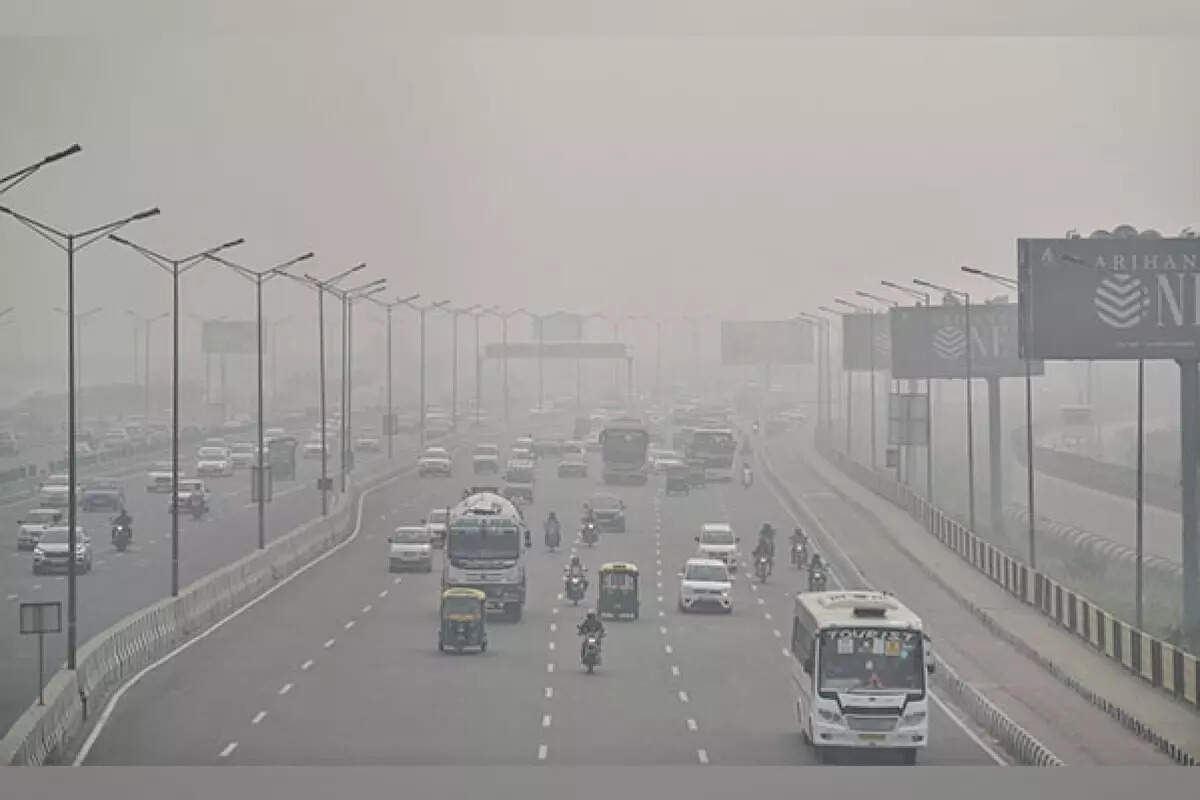
After Delhi’s air quality fell sharply to the ‘severe’ level on Friday, the sub-committee of the Commission for Air Quality Management (CAQM) imposed stage III of the Graded Response Action Plan (Grap) in Delhi-NCR with immediate effect.
As part of these measures, CAQM asked NCR states to ban plying of BS-3 petrol and BS-4 diesel four-wheelers in Delhi, and Gurgaon, Faridabad, Ghaziabad and Gautam Budh Nagar districts. Construction and demolition, stone crushers and mining-related activities were also banned. A senior Delhi transport official said the curbs would come into force from Saturday morning.
Delhi’s average AQI was 409 on Friday, back in ‘severe’ zone after 28 days. Earlier, Grap 3 measures were in force from November 2 to 28.
Following the rollout of Graded Response Action Plan (Grap) 3 measures on Friday, the Commission for Air Quality Management (CAQM) said state governments in Delhi and NCRmay take a decision on discontinuing physical classes in schools for children upto Class V and conducting classes in online mode. Itdirected officials to intensify public transport services and introduce differential rates to encourage off-peak travel.
The commission’s order banned construction and demolition activities, except in railway services or railway stations, Metro services including stations, airports and inter-state bus terminals, national security or defence-related activities or projects of national importance, hospitals or healthcare facilities, linear public projects such as highways, roads, flyovers, overbridges, power transmission and pipelines, sanitation projects like sewage treatment plants and water supplyproject etc, as well as ancillary activities specific toand supplementing these categories of projects.
However, non-polluting and non-dust generatingactivities, including plumbing works, interior decoration, electrical works and carpentry will be allowed. The ban on C&D activitiesis likely to severely impact daily-wage labourers.
CAQM said unfavourable meteorological conditions, including fog and haze along with low wind speed, were the major factors in the sudden spike in Delhi’s average AQI. The commission said the Grap measures were imposed due to the prevailing trend of air quality and to prevent further deterioration of air quality.
Anumita Roychowdhury, executive director, research and advocacy, Centre for Science and Environment (CSE), said, “Our long-term analysis shows that late December and early January also experience severe smog episodes. But this time it’s local pollution and pollution from surrounding areas that gets trapped. This shows why very stringent efforts are needed to cut local emissions from key sources.”

